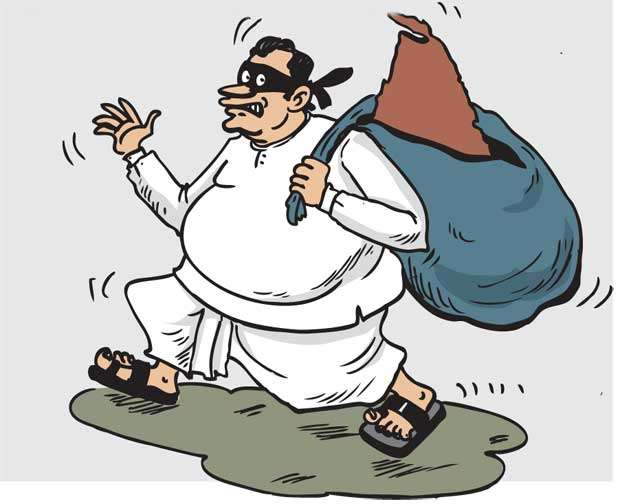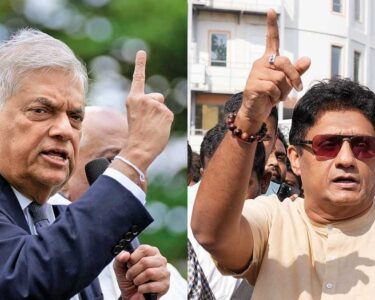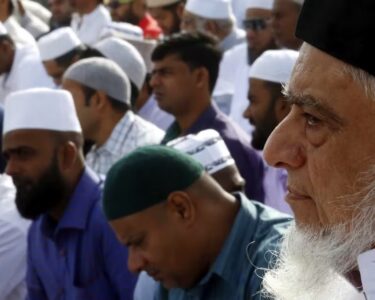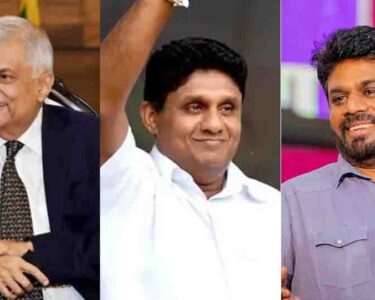Unprecedented Political Shifts in Sri Lanka: The Mass Crossover Phenomenon
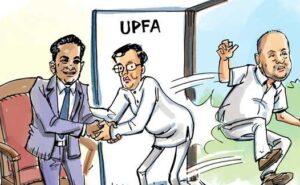
The unfolding political landscape in Sri Lanka is witnessing an unprecedented wave of mass crossovers, a phenomenon that is reshaping the country’s political dynamics ahead of the presidential election in September 2024. Over 90 Members of Parliament (MPs) from the Sri Lanka Podujana Peramuna (SLPP) have defected to support President Ranil Wickremesinghe, marking a significant realignment in the political arena. This massive defection includes several MPs from the Sri Lanka Freedom Party (SLFP) and even some from the Samagi Jana Balawegaya (SJB), such as Velu Kumar, who pledged allegiance to Wickremesinghe.
The crossovers are not limited to support for Wickremesinghe. A faction of the SLPP has thrown its weight behind SJB leader Sajith Premadasa and Mawbima Janatha Party leader Dilith Jayaweera. The SLPP defectors supporting Wickremesinghe have launched a new coalition, the People’s Alliance, under the leadership of SLPP MP Anura Priyadarshana Yapa. This new coalition plans to contest the next general election under the ‘Chair’ symbol, a move aimed at securing their political futures in the face of uncertain times.
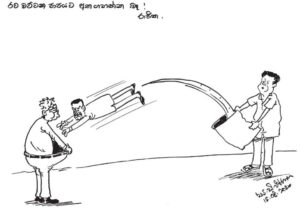
The motivations behind these crossovers are clear. As political analyst Vishwamithra notes, the dissidents are primarily driven by self-interest, with an eye on the upcoming parliamentary elections. The United National Party (UNP), which currently holds only a single seat in parliament, faces a precarious future if Wickremesinghe fails to secure the presidency. For the SLPP defectors backing Wickremesinghe, their political survival hinges on his victory, as they have already severed ties with the SLPP. Similarly, SJB MPs who have aligned with Wickremesinghe risk losing their political footing if their gamble does not pay off.
The broader implications of these mass defections are profound. Crossovers, while not new to Sri Lanka, have always had the potential to distort the popular will by altering the composition of parliament and other political institutions. This latest wave of crossovers, however, has sparked renewed debate about the ethics and legality of party switching. Vishwamithra highlights that Sri Lanka has a long history of crossovers leading to regime changes. Notable instances include the defection of SLFP MPs in 1964, which brought down Prime Minister Sirima Bandaranaike’s government, and the fall of the People’s Alliance government in 2001 following the defection of several key MPs to the UNP.
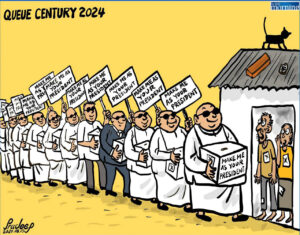
The recent spate of crossovers has reinvigorated calls for anti-crossover legislation, a demand that successive governments have resisted. Proponents of such legislation argue that crossovers undermine democratic governance and betray the trust of voters, who elect representatives based on their party affiliations. Critics of crossovers point out that the current defections make a mockery of the SLPP’s 2020 mandate, as defectors now support the very policies they once opposed.
Despite the controversy, crossovers are not unique to Sri Lanka. Even in the British Parliament, party switching is not uncommon, although defectors typically face fewer consequences. However, Sri Lanka’s proportional representation system complicates the issue, as by-elections cannot be easily conducted, leaving defectors vulnerable to expulsion by their parties.
As Sri Lanka navigates this turbulent political period, the debate over party switching is likely to intensify, raising important questions about the nature of representation, loyalty, and the integrity of the electoral process. The need for a comprehensive public discussion on this issue is more pressing than ever, as the country grapples with the implications of these unprecedented political shifts.

The unfolding political landscape in Sri Lanka is witnessing an unprecedented wave of mass crossovers, a phenomenon that is reshaping the country’s political dynamics ahead of the presidential election in September 2024. Over 90 Members of Parliament (MPs) from the Sri Lanka Podujana Peramuna (SLPP) have defected to support President Ranil Wickremesinghe, marking a significant realignment in the political arena. This massive defection includes several MPs from the Sri Lanka Freedom Party (SLFP) and even some from the Samagi Jana Balawegaya (SJB), such as Velu Kumar, who pledged allegiance to Wickremesinghe.
The crossovers are not limited to support for Wickremesinghe. A faction of the SLPP has thrown its weight behind SJB leader Sajith Premadasa and Mawbima Janatha Party leader Dilith Jayaweera. The SLPP defectors supporting Wickremesinghe have launched a new coalition, the People’s Alliance, under the leadership of SLPP MP Anura Priyadarshana Yapa. This new coalition plans to contest the next general election under the ‘Chair’ symbol, a move aimed at securing their political futures in the face of uncertain times.
The motivations behind these crossovers are clear. As political analyst Vishwamithra notes, the dissidents are primarily driven by self-interest, with an eye on the upcoming parliamentary elections. The United National Party (UNP), which currently holds only a single seat in parliament, faces a precarious future if Wickremesinghe fails to secure the presidency. For the SLPP defectors backing Wickremesinghe, their political survival hinges on his victory, as they have already severed ties with the SLPP. Similarly, SJB MPs who have aligned with Wickremesinghe risk losing their political footing if their gamble does not pay off.
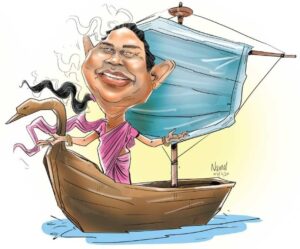
The broader implications of these mass defections are profound. Crossovers, while not new to Sri Lanka, have always had the potential to distort the popular will by altering the composition of parliament and other political institutions. This latest wave of crossovers, however, has sparked renewed debate about the ethics and legality of party switching. Vishwamithra highlights that Sri Lanka has a long history of crossovers leading to regime changes. Notable instances include the defection of SLFP MPs in 1964, which brought down Prime Minister Sirima Bandaranaike’s government, and the fall of the People’s Alliance government in 2001 following the defection of several key MPs to the UNP.
The recent spate of crossovers has reinvigorated calls for anti-crossover legislation, a demand that successive governments have resisted. Proponents of such legislation argue that crossovers undermine democratic governance and betray the trust of voters, who elect representatives based on their party affiliations. Critics of crossovers point out that the current defections make a mockery of the SLPP’s 2020 mandate, as defectors now support the very policies they once opposed.
Despite the controversy, crossovers are not unique to Sri Lanka. Even in the British Parliament, party switching is not uncommon, although defectors typically face fewer consequences. However, Sri Lanka’s proportional representation system complicates the issue, as by-elections cannot be easily conducted, leaving defectors vulnerable to expulsion by their parties.
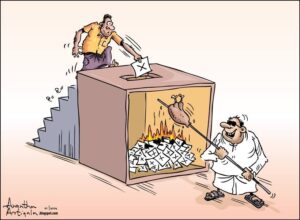
As Sri Lanka navigates this turbulent political period, the debate over party switching is likely to intensify, raising important questions about the nature of representation, loyalty, and the integrity of the electoral process. The need for a comprehensive public discussion on this issue is more pressing than ever, as the country grapples with the implications of these unprecedented political shifts.



